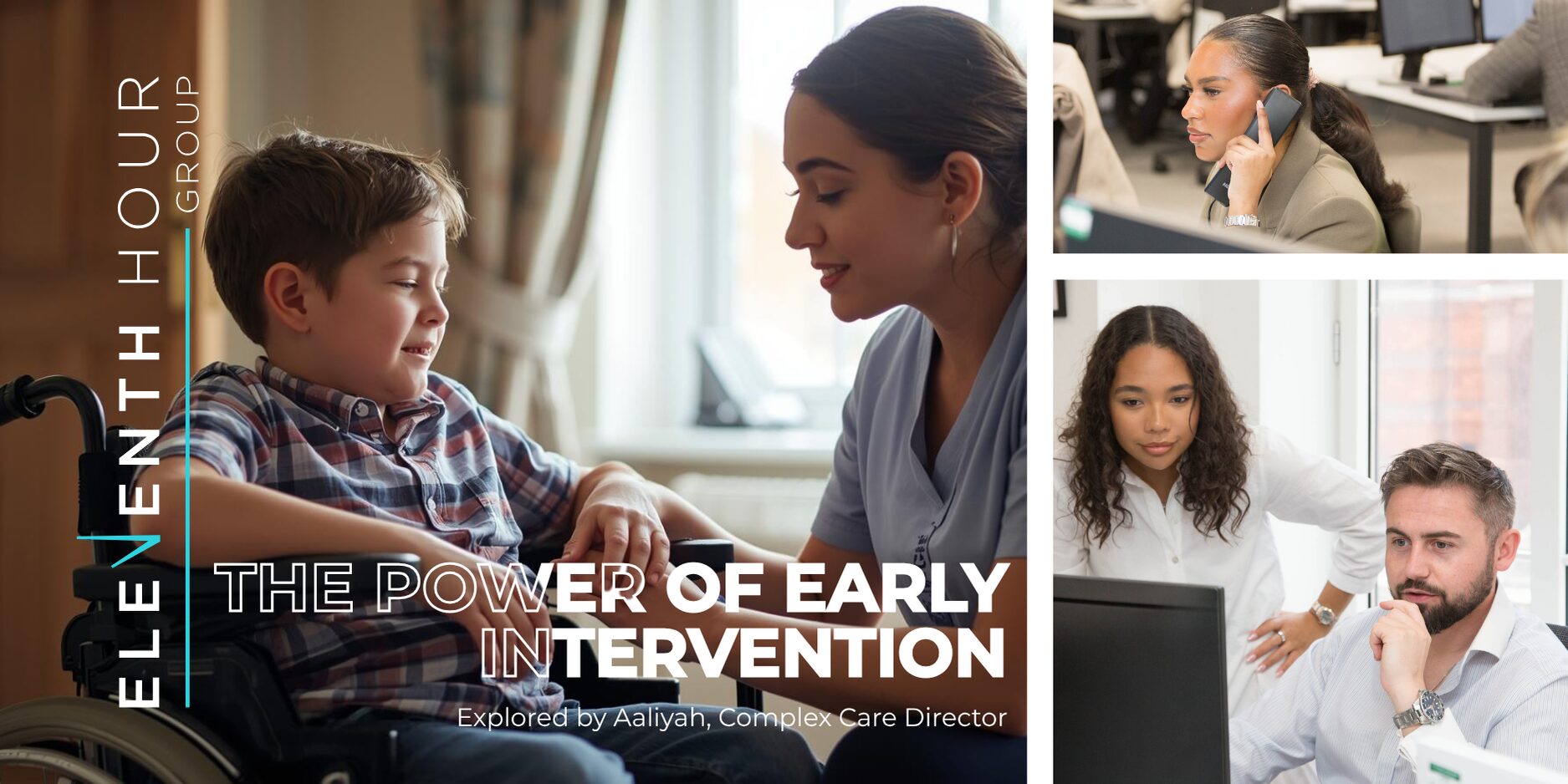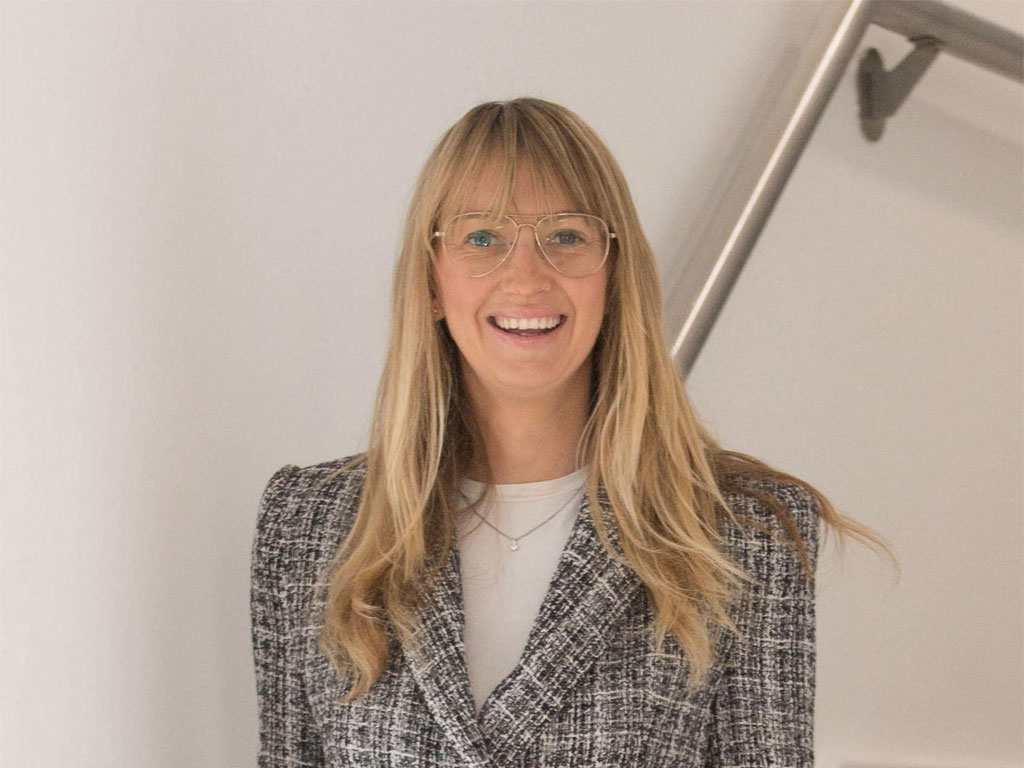Across the UK, thousands of people rely on complex home care to live safely, as independently as possible and with dignity. This is care that goes beyond routine support. It involves detailed planning, clinical skill, and a deep understanding of each person’s needs.
Yet, for most of us, the work that keeps these services running remains largely invisible.
Today, we go behind the scenes with Eleventh Hour Group’s Complex Care Team in their daily operations. We shadow Aaliyah, the Team Manager, as she leads her colleagues through an unpredictable day of emergencies, planning meetings, staff management and client advocacy.
It is work defined by precision, empathy and unrelenting focus on safety. And it offers a rare window into what it really takes to make complex home care work.

Eleventh Hour Group’s Complex Care Team
Early Risers
It’s 3:23am. A placement for a highly vulnerable individual has broken down for a local authority, and they are seeking immediate aid. The phone rings, and the Complex Care Team’s day is about to begin. Aaliyah, Complex Care’s Team Leader, leaping into action, fully aware that the person at the heart of this conversation needs calmness, compassion and a rapid response to the challenges they find themselves facing.
Within minutes, the call is over, the notes are taken, and the real work begins. Finding that right placement to ensure the package is sustainable, solution focused and, most crucially, safe.
Emotions often run high. When there is a highly vulnerable person at risk, this is understandable. Aaliyah works hard to ensure she maintains a calm disposition for the team. She leads by example. Taking accountability and being proactive are two of the many qualities that compliment Aaliyah’s strength as a leader.
With cases like these, there is no time for panic. Within minutes, the first steps are taken to find a new placement that is not only available but sustainable, with the right level of staffing, expertise and support.
For Aaliyah, this is not unusual. In Complex Care, emergencies arrive at any hour. Managing them well depends on clear thinking, strong local networks and an unwavering focus on the individual’s needs.
It’s 7:50am, and Aaliyah reaches her desk. Having already secured the placement from the call earlier this morning, Aaliyah is about to start her day to day operations.
Check Emails and Overnight Reports
At 8am, Aaliyah checks her emails and overnight reports. This involves careful review overnight care logs from staff (e.g. incidents, medication errors, unexpected client issues). Aaliyah works hard to ensure the care logs are written with attention to detail and scrutinised for clarity, consistency and care daily at head office.
Should there be any, Aaliyah will immediately respond to any urgent concerns raised by night staff or families.
After this, Aaliyah prioritises the day’s key issues and shares with the team any immediate takeaways that will set them up for the day.
Team Briefing In-Person
At 8:30, the team come together for a briefing. The discussion is well-paced, focused and driven by the core purpose to ensure the service users are able to live as independently as possible in a safe environment. The team take the opportunity to share critical updates about client needs. This includes new risk factors, hospital discharges and staffing changes. At each point, Team Manager Aaliyah reinforces clinical and safeguarding protocols, carefully considered by the team.
By 9:00am, the team were preparing for an upcoming Placement Visit next week where care plan and placement reviews will be taking place. To ensure rigour, the team discuss the logistics and responsibilities for all members who are due to attend. The discussion covers visits to individual service users’ homes or supported living environments. Key areas from last inspections that needed to be highlighted, and specific areas of the reviews of personalised care plans that needed particular attention. The core focus of the visits is always person-centred therefore it is paramount to assess client well-being (physical, emotional, social). Highlighted at every opportunity by the team. Discussions on stakeholder engagement address which family members, advocates, or other professionals would be in attendance.
MDT Meeting. Updates of how service users are getting on.
Later in the morning, Aaliyah attends an MDT meeting. These sessions bring together parents, social workers, district nurses, occupational therapists, commissioners.
High-risk cases are reviewed. Hospital discharge plans are scrutinised. Funding approvals are negotiated.
Notes are taken carefully. Follow-up actions are agreed and assigned. Multi-agency working is complex, but essential. For many clients, good outcomes depend on this coordination being not just professional, but personal.
Complex Care Team, Ruth, Ben and Dan
Staff Supervision and Support
Between meetings, Aaliyah runs a 1:1 session with a senior team member. These supervisions are varied. They might involve coaching clinical skills. Reviewing safeguarding procedures. Supporting documentation quality.
They also cover HR tasks such as training compliance, checking in on staff wellbeing.
It is a reminder that managing Complex Care is not only about clients. The staff delivering care need guidance, support and accountability too.
Complex Care Case Management
Afternoons often focus on core case management work.
Risk assessments are updated. Care plans are reviewed and authorised. Commissioners are contacted to discuss new packages or amendments to existing ones.
Referrals are arranged. Occupational therapy. District nursing. Palliative services. Each task contributes to the stability and quality of individual care packages.
Recruitment and Rota Planning
Staffing is another key responsibility. The team must check staffing levels across all packages, paying particular attention to intensive cases requiring 1:1, 2:1 or 3:1 support.
Interviews or onboarding sessions for new care workers might be scheduled. Agency and internal colleagues are consulted about filling urgent shifts.
Rotas are planned weeks in advance, factoring in sickness and holiday. This work is relentless but essential. Without the right people in the right places, packages cannot run safely.
Complex Care Manager, Aaliyah
End-of-Day Wrap-Up
As the day closes, Aaliyah updates families and commissioners on progress. Calls are made. Emails are sent.
She checks in with on-call staff who will be covering evenings and weekends. Care management systems are updated with notes and actions. The final task is to review and set priorities for tomorrow.
Spending a day with Aaliyah and her team challenges many assumptions about what community care management involves.
This is not a job of checking boxes or simply assigning staff to shifts. It is a form of leadership that requires vigilance and empathy in equal measure. It means balancing urgent crises, like a 3am placement breakdown, with structured planning for the week ahead.
It is about navigating the pressures of commissioning and funding approvals without losing sight of the person at the heart of every package. It means leading a team through difficult conversations about risk, safety and wellbeing, while offering guidance and reassurance to staff who may themselves be dealing with emotionally demanding situations.
It also involves forging partnerships, with social workers, nurses, families, advocates, to build a support network that can flex and respond as a person’s needs change. Every decision carries weight. A missed detail can have serious consequences.
Most importantly, shadowing this work reveals that good Complex Care management is invisible by design. When it is done well, crises are resolved before they escalate. Care packages are sustainable, person-centred, and safe. Staff know what is expected and feel supported. Families have someone they can call who knows them, listens and acts.
It is quiet work. Often thankless. But essential.
Because at its core, Complex Care is about making sure people can stay in their own homes, living the fullest life possible, even when their needs are significant. That outcome depends on teams like Aaliyah’s, professional, calm under pressure, committed to the details and the people they serve.
A huge thank you to Aaliyah and her team who go above and beyond for the vulnerable service users and their families. It is dedication like this that makes us proud to be EHG.
To learn more about our Complex Care Team contact Aaliyah and her team at info@eleventhhourgroup.co.uk










